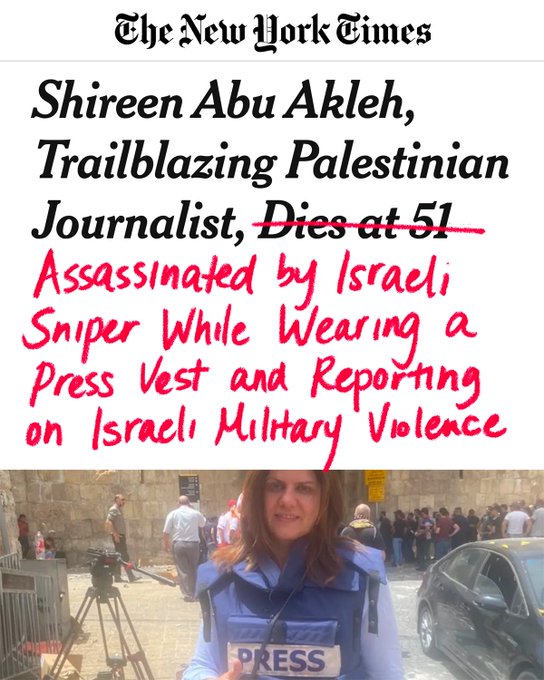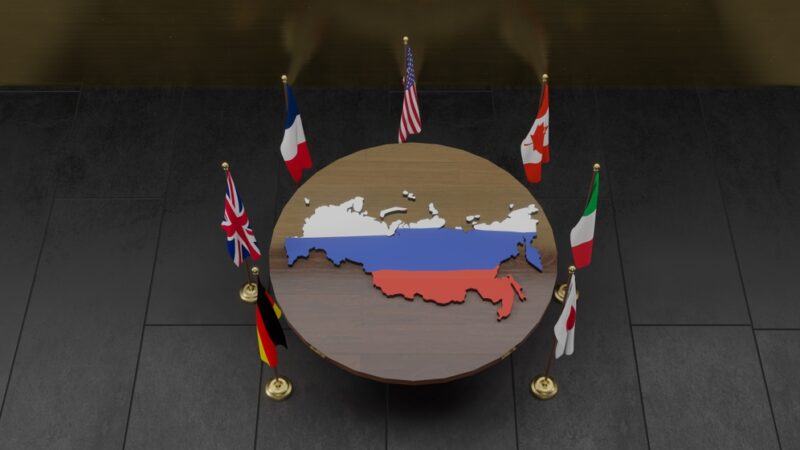NYT bias over the death of two journalists
The New York Times has long been lauded as a bastion of journalism – and has rightfully earned this title over the years.
But a side-by-side comparison of two approaches to the tragic death of two journalists is double standards at best – and really, such a bastion ought to know and do better.
In March, documentary and filmmaker Brent Renaud was shot dead while filming the conflict in Ukraine.

Last week, the NYT ran the following headline about the death of Shireen Abu Akleh.

A follow-through click of the article sees the headline change to something less egregious:

But the initial search comparison of the two stories reveals something about the publication’s tempering of the Israel-Palestine conflict, leading to two politically influenced headlines.
- Both Renaud and Akleh were American journalists, only Akleh’s dual Palestinian nationality was emphasised in the headline
- Both were killed on assignment – but the NYT headline on Akleh’s death says she ‘died’ rather than murdered, while Renaud was ‘killed’
- Her age was included, while Renaud’s was not; circumstances around her death were omitted from the headline, while in Renaud’s case, they were not
Whether it was unconscious bias or conscious misrepresentation, the politically divisive location and military circumstances surrounding her death seemingly led to a tentative, less laudatory initial coverage of Akleh’s death. Some expressed their dissatisfaction by ‘correcting’ the headline:
Akleh was shot in the head in the Israeli-dominated West Bank city of Jenin. The Palestinian Health Ministry blamed Israeli Occupation Forces. Israeli military said that “Palestinian armed gunfire” may have been responsible – which lead to the NYT’s first run of the story.
The initial lede shows this inaccuracy:
which was later corrected to reflect the misleading report that “Palestinian gunmen” were instigators:
While the NYT posted a correction tweet, some have argued the immediate style and coverage reflects the paper’s political policies surrounding Palestine and Israel.
The NYT has since ran a more accurate story and series on the investigation, as well as Akleh’s work.
For comparison, here is the story as covered by the Boston Globe.























